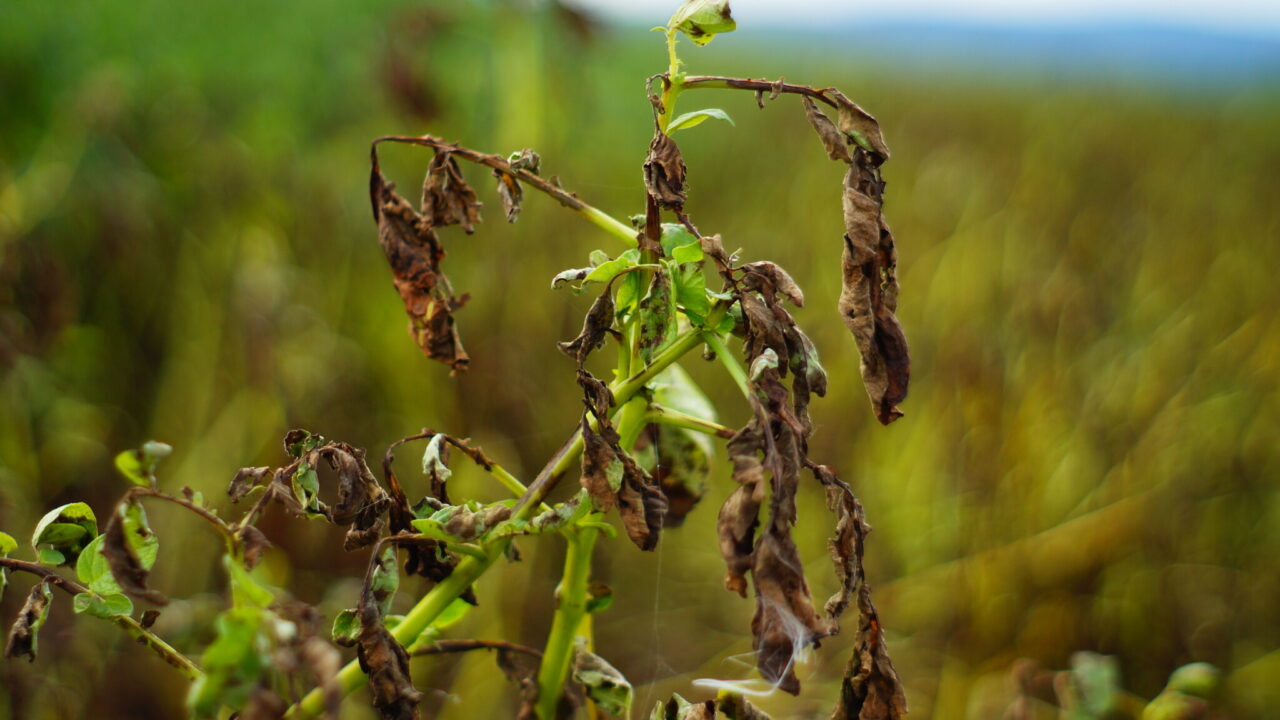Potato blight could be identified at an earlier stage with the use of a new ‘phone app’ that is currently under development.
Spearheaded by a research team at Aberystwyth University in Wales, the ‘DeepDetect’ project aims to develop a mobile phone app that uses artificial intelligence to provide early warnings of diseases in potatoes.
Traditionally, disease detection in crops has relied on manual inspection and relevant weather warnings
DeepDetect aims to change that by harnessing the power of machine learning to deliver accurate diagnoses directly to farmers’ smartphones.
Dr. Edore Akpokodje, a lecturer in computer science at Aberystwyth University, said: “Our goal is to empower farmers with a tool which is not only scientifically robust but also practical and easy to use, and which delivers instantaneous, location-specific disease forecasts straight to their phones.
“By integrating farmer feedback from the outset, we will ensure that this technology is grounded in real-world needs and challenges.
“Addressing the challenge of early diagnosis of potato plant disease would boost productivity and reduce costs for farmers, while supporting more sustainable and targeted disease management.
According to Dr. Akpokodje, by decreasing reliance on pesticides, this approach benefits both the environment and the long-term resilience of the potato industry.
“The technology also has the potential for wider application across other crops, driving innovation in agricultural practices,” the professor said.
Potato blight app
The first stage of the DeepDetect project comprises a comprehensive feasibility study, including market research to understand the limitations of current early warning systems and identify the needs of potato growers.
The project team will then create an AI-powered prototype using image datasets of healthy and diseased potato leaves.
Once the prototype has been developed, the team will conduct focus groups and workshops with farmers and agronomists to refine the model and ensure usability.
The outcomes of this feasibility study, which is funded by the Welsh Government Smart Flexible Innovation Support (SFIS) programme, will lay the groundwork for a national early warning system for potato blight, with potential to expand the technology to other crops and regions in the future.
Dr. Aiswarya Girija from the Institute of Biological, Environmental and Rural Sciences at Aberystwyth University commented: “Potatoes are the fourth most important staple crop globally, and optimal production is essential for a growing global population.
“Potato blight is therefore not just a farming issue: it’s a food security issue.
“As well as threatening the stability of food supplies, potato blight drives up production costs and reliance on environmentally harmful fungicides.
“The system we plan to develop will be capable of detecting early signs of disease before they become visible to the human eye, allowing for timely and targeted interventions.”

